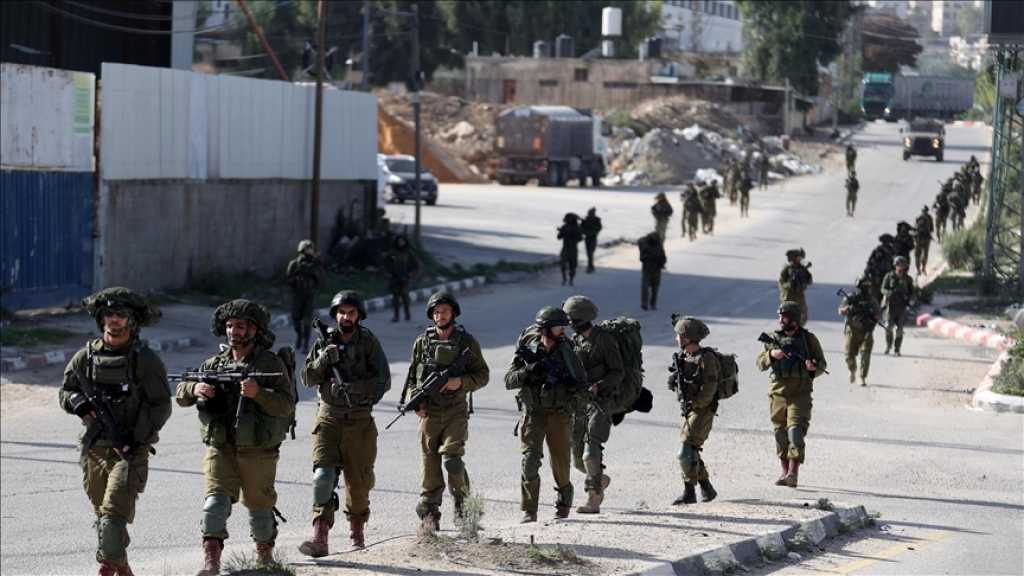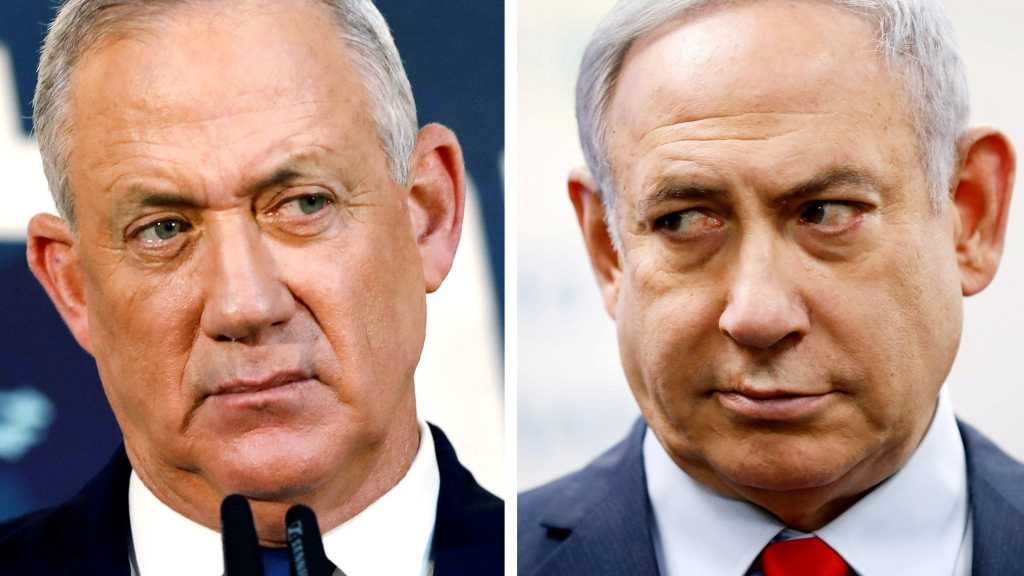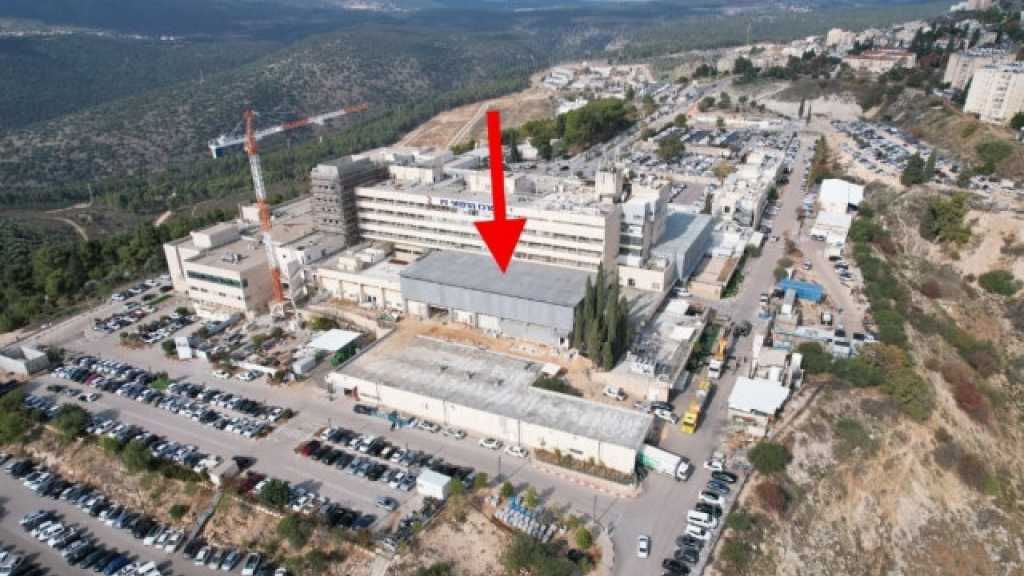
With Sharp Words & Stealth Strikes, «Israel» Sends Message to Hezbollah
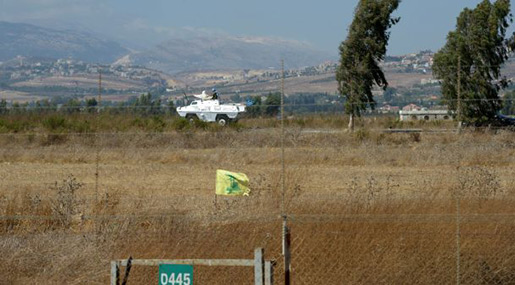
Local Editor
The "Israeli" entity has flexed its military muscles in recent months as the regional balance of power has pitched further in favor of its most bitter adversaries: Iran and the Lebanese Hezbollah.
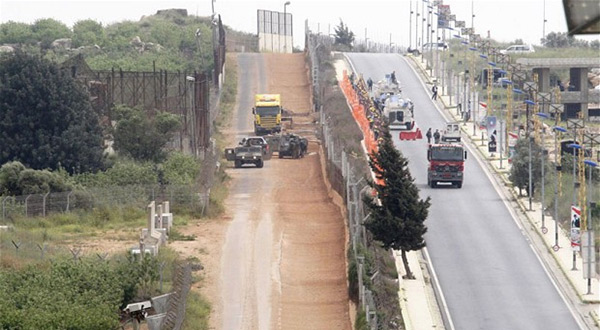
Analysts and former senior "Israeli" military officers say the "Israeli" entity is showing that it will act with force to protect its interests, while using just enough of it to limit its enemies without sparking a war. But it's a precarious line to tread, and even a small misstep could lead to conflict, they say.
The "Israeli" entity is scrambling to adjust as Syrian President Bashar al-Assad has taken the upper hand in his country's six-year war, propped up by an emboldened Iran and Hezbollah.
The "Israeli" regime had expressed frustration as the Trump administration focused on fighting the Wahhabi Daesh [Arabic acronym for "ISIS" / "ISIL"] militants without, in the entity's opinion, sufficiently limiting Iran and its proxies. "Israeli" Prime Minister Benjamin Netanyahu publicly criticized a US-Russia cease-fire deal in southern Syria for not including provisions to stop Iranian expansion.
The entity is now making itself heard. Last week "Israeli" jets buzzed so low over southern Lebanon that they shattered windows and caused panic. That followed the bombing of a military site in Syria earlier in the month that they allege to have been linked to missile production for Hezbollah.
On Tuesday, the army used a Patriot missile to shoot down a drone that neared its airspace.
Threats had escalated on both sides. "If the Zionist regime makes any wrong move, Haifa and Tel Aviv will be razed," Iran's army chief Maj. Gen. Abdolrahim Mousavi warned this week in comments published by Fars news agency, referring to "Israeli" cities within the range of Hezbollah rockets.
Hezbollah had defeated the "Israeli" entity in a month-long war in 2006 that caused heavy casualties. Since then, the Syrian war had provided Hezbollah fighters with a training opportunity, while "Israel" estimates that it has built up a stockpile of more than 100,000 rockets.
The "Israeli" entity fears Iran will help Hezbollah upgrade to more accurate precision-guided missiles and establish a permanent military presence in Syria, from where they could eventually turn their focus south.
"Generally speaking, this is the kind of threat we can't live with," said Brig. Gen. Nitzan Nuriel, a former "Israeli" Occupation Forces [IOF] officer who was deputy commander of the division responsible for the Lebanese front during the 2006 war. "This is the kind of threat we need to deal with."
In recent months, Netanyahu accused Iran of establishing long-range missile-manufacturing sites in both Lebanon and Syria.
The entity is keen to leverage more favorable outcomes in Syrian cease-fire deals where it feels its interests have been ignored, and public threats and messages are meant as much for "Israel's" allies as its enemies, Nuriel said.
"At the same time we will try to keep Hezbollah weak to remind them what happened in 2006," he said.
In a speech last month, Hezbollah Secretary General His Eminence Sayyed Hasan Nasrallah mocked Netanyahu for "crying" over the defeat of Daesh in Iraq and Syria.
Sayyed Nasrallah had repeatedly warned the "Israeli" entity against attacking Lebanon.
"If the ‘Israelis' think they can now make war in Lebanon, then they are making a big mistake. In Syria we have learned to attack," said a senior official from the military alliance of Hezbollah, Syria and Iran who spoke on condition of anonymity.
Netanyahu tried to drive his point home at the UN General Assembly in New York on Tuesday, saying that "those who threaten us with annihilation put themselves in mortal peril." "Israel" will act to prevent Iran from opening "new ‘terror' fronts" on the "Israeli"-occupied northern border of Palestine, he said.
He also pushed for changes to the international deal limiting Iran's nuclear activities.
"This is all classic Netanyahu," said Ofer Zalzberg, a senior analyst at International Crisis Group. "Saying ‘hold me back before I do something,' but I don't see ‘Israel' launching a preemptive war. The next war between ‘Israel; and Hezbollah will be dramatic for ‘Israel's' population and will have consequences for whoever is in power."
But the prospect is not impossible; there are some "Israeli" officials advocating intervention, he said, describing the entity as "panicked." "Advocates are saying bomb now."
Accordingly, the "Israeli" military now fears a scenario in which Hezbollah, which formed in the 1980s to fight the "Israeli" occupation of Lebanon and had gained experience, could raid one of "Israel's" 22 border settlements as war in Syria winds down.
In April, Hezbollah organized a rare press trip to the area to highlight what appeared to be newly constructed fortifications on the "Israeli"-occupied side of the UN-patrolled buffer zone between the two countries.
"The ‘Israeli' enemy is undertaking these fortifications and building these obstacles in fear of an advance," said a Hezbollah commander who went by the nom de guerre Haj Ihab.
The "Israeli" entity's War Ministry confirmed that it was indeed bolstering its defenses, including walls near the "Israeli" entity northern settlements that are vulnerable to cross-border sniper fire or antitank missiles, "Israeli" media reported. It also said the project will cost some $34.7 million.
"We are strengthening the border based on the understanding that in any future conflict, Hezbollah would make a concerted effort to cross the border," said an IOF official in the Northern Command who spoke on the condition of anonymity because he was not authorized to speak publicly.
In the meantime, the "Israeli" entity will continue its strategy of "deterrence and prevention," Nuriel said, managing the risks of escalation.
Source: WP, Edited by website team

